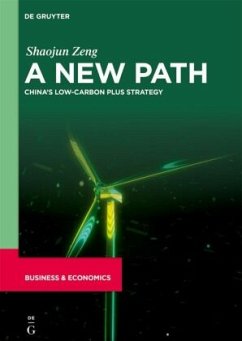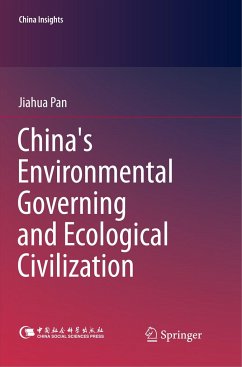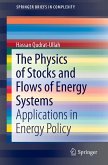In September 2020, China announced that it would peak carbon dioxide emissions by 2030 and become carbon neutral by 2060. How and whether it can achieve the target is a matter of great concern to the international community. This is the first book to provide a comprehensive analysis of the underlying theory of "Low-Carbon Plus", in which "low carbon" is the core and "plus" represents the critical areas that will go through low-carbon transformation (including industry, agriculture, buildings, transportation, energy and consumption), and puts forward the most practical path for China to achieve carbon neutrality.
Starting from the basic theory of the Low-Carbon Plus strategy, the book introduces the low-carbon development situation domestically and abroad, summarizes the essential experiences and inspirations, and outlines a roadmap for China to implement the strategy. While focusing on emission reduction in primary and secondary industries, this book strongly recommends the development of low-carbon finance and low-carbon consumption, which can facilitate the ultimate realization of the Low-Carbon Plus strategy.
As a fruitful result of the research by China's national think tank, Low-Carbon Plus is an emerging development model that complements economic development and forces technological innovation, institutional innovation, and mind shift, and it is expected to have a significant and far-reaching impact on global economic growth.
Hinweis: Dieser Artikel kann nur an eine deutsche Lieferadresse ausgeliefert werden.
Starting from the basic theory of the Low-Carbon Plus strategy, the book introduces the low-carbon development situation domestically and abroad, summarizes the essential experiences and inspirations, and outlines a roadmap for China to implement the strategy. While focusing on emission reduction in primary and secondary industries, this book strongly recommends the development of low-carbon finance and low-carbon consumption, which can facilitate the ultimate realization of the Low-Carbon Plus strategy.
As a fruitful result of the research by China's national think tank, Low-Carbon Plus is an emerging development model that complements economic development and forces technological innovation, institutional innovation, and mind shift, and it is expected to have a significant and far-reaching impact on global economic growth.
Hinweis: Dieser Artikel kann nur an eine deutsche Lieferadresse ausgeliefert werden.








